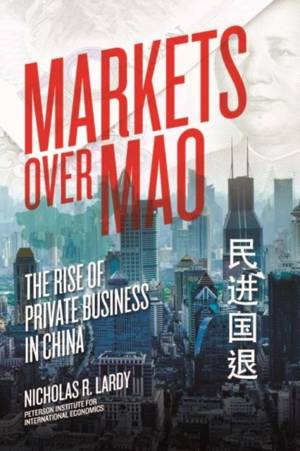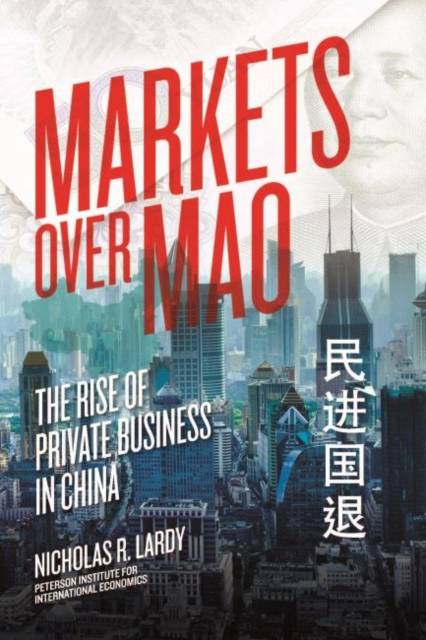
Je cadeautjes zeker op tijd in huis hebben voor de feestdagen? Kom langs in onze winkels en vind het perfecte geschenk!
- Afhalen na 1 uur in een winkel met voorraad
- Gratis thuislevering in België vanaf € 30
- Ruim aanbod met 7 miljoen producten
Je cadeautjes zeker op tijd in huis hebben voor de feestdagen? Kom langs in onze winkels en vind het perfecte geschenk!
- Afhalen na 1 uur in een winkel met voorraad
- Gratis thuislevering in België vanaf € 30
- Ruim aanbod met 7 miljoen producten
Zoeken
€ 37,45
+ 74 punten
Omschrijving
China's transition to a market economy has propelled its remarkable economic growth since the late 1970s. In this book, Nicholas R. Lardy, one of the world's foremost experts on the Chinese economy, traces the increasing role of market forces and refutes the widely advanced argument that Chinese economic progress rests on the government's control of the economy's "commanding heights." In another challenge to conventional wisdom, Lardy finds little evidence that the decade of the leadership of former President Hu Jintao and Premier Wen Jiabao (2003-13) dramatically increased the role and importance of state-owned firms, as many people argue. This book offers powerfully persuasive evidence that the major sources of China's growth in the future will be similarly market rather than state-driven, with private firms providing the major source of economic growth, the sole source of job creation, and the major contributor to China's still growing role as a global trader. Lardy does, however, call on China to deregulate and increase competition in those portions of the economy where state firms remain protected, especially in energy and finance.
Specificaties
Betrokkenen
- Auteur(s):
- Uitgeverij:
Inhoud
- Aantal bladzijden:
- 186
- Taal:
- Engels
Eigenschappen
- Productcode (EAN):
- 9780881326932
- Verschijningsdatum:
- 10/09/2014
- Uitvoering:
- Paperback
- Formaat:
- Trade paperback (VS)
- Afmetingen:
- 152 mm x 229 mm
- Gewicht:
- 303 g

Alleen bij Standaard Boekhandel
+ 74 punten op je klantenkaart van Standaard Boekhandel
Beoordelingen
We publiceren alleen reviews die voldoen aan de voorwaarden voor reviews. Bekijk onze voorwaarden voor reviews.









